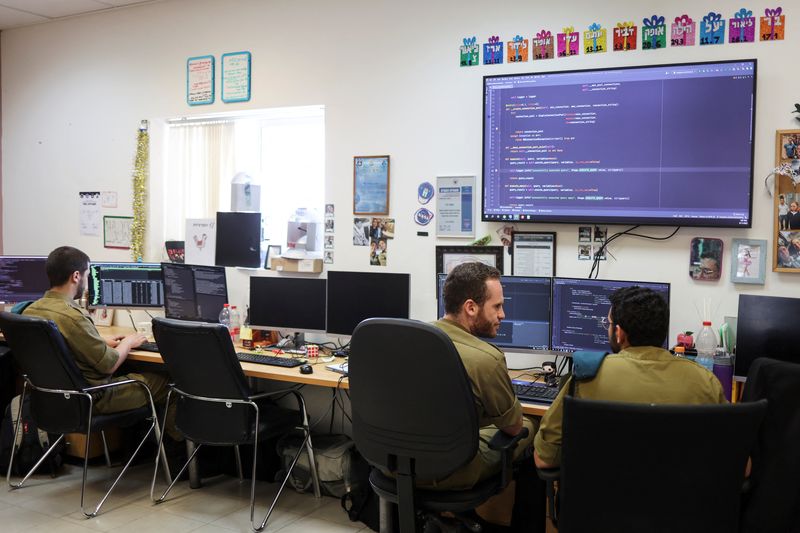By Dan Williams
RAMAT GAN, Israel (Reuters) – During last month’s Gaza mini-war, Israeli commanders made first use of “Knowledge Well”, a bot that provided real-time overviews of Palestinian rocket launches – where they took place, at what rate and range – over a platform modelled on WhatsApp.
For the next flare-up, Colonel Eli Birenbaum, chief of the military’s operational data and applications unit, has plans to use artificial intelligence aggregation to predict the salvoes.
“That’s the interesting leap forward to come. I want to be where I can best use information to provide our forces in the field with functionality,” he told Reuters in an interview.
Around half of Israel’s military technologists will be focused on AI by 2028, Birenbaum said, part of a shift that has been under way since he helmed its first machine-learning platform – designed to spot hacking attempts – in 2016.
Currently, he said, there are “many hundreds” of personnel dealing broadly with AI-related projects, and who constitute 20% of military technologists. Within five years, they will number in the thousands, he predicted.
He has government backing, with Prime Minister Benjamin Netanyahu increasing the defence budget and pledging to make Israel an AI “powerhouse”.
But that spells a staffing bottleneck: By eliminating lower-level coding roles, AI relegates humans to jobs which demand extensive training.
Creating a data scientist from scratch “means telling an 18-year-old kid: ‘Listen, this is your future … You must commit to a bachelor’s degree, a master’s degree, and then do six years’ military service,’” Birenbaum said at his base near Tel Aviv, a warren of computer rooms where troops conferred quietly around screens amid the whir of giant server cooling systems.
During their mandatory service – two years for women, 32 months for men – military technologists earn a monthly $335. In the first few years of their ensuing service, it rises to about $2,300, Birenbaum said – far below the $8,400 they might earn in equivalent civilian jobs.
“It’s no secret that I can’t compete with the Google or Facebook salaries,” he said. “What can I offer? Meaningfulness.”
“We don’t fix some button in a program. We solve nation-level problems. It’s not finding a needle in a single haystack but in eight, 80, 8,000 haystacks, all piled atop one another.”
Militaries the world over are pondering the moral ramifications of an AI arms race. For Israel, AI target-acquisition will not spell automated target-destruction, Birenbaum stressed. “In the foreseeable future, there will always be a person in the loop,” he said.
(Writing by Dan Williams; Editing by Supantha Mukherjee and Nick Macfie)





